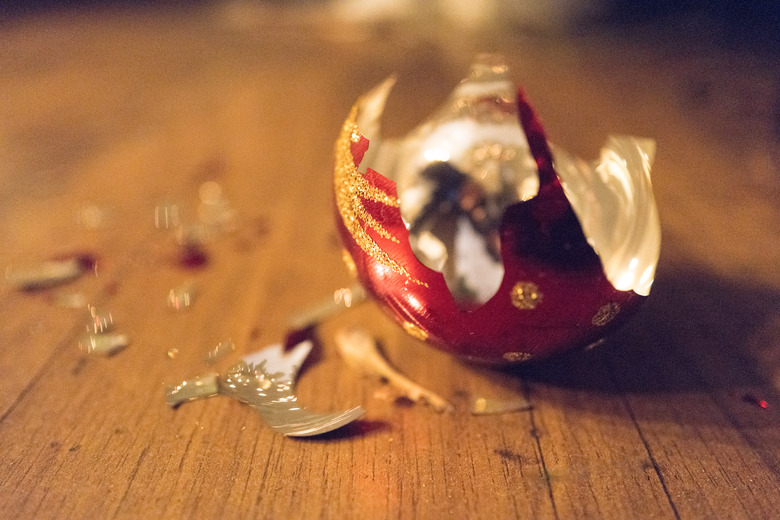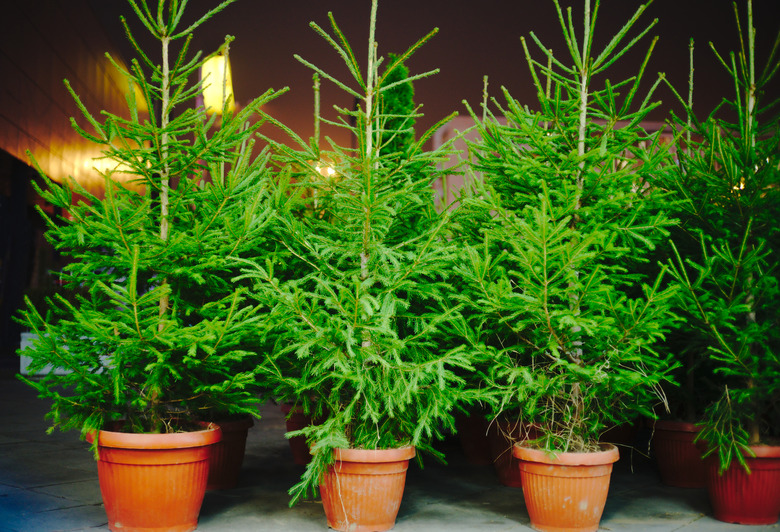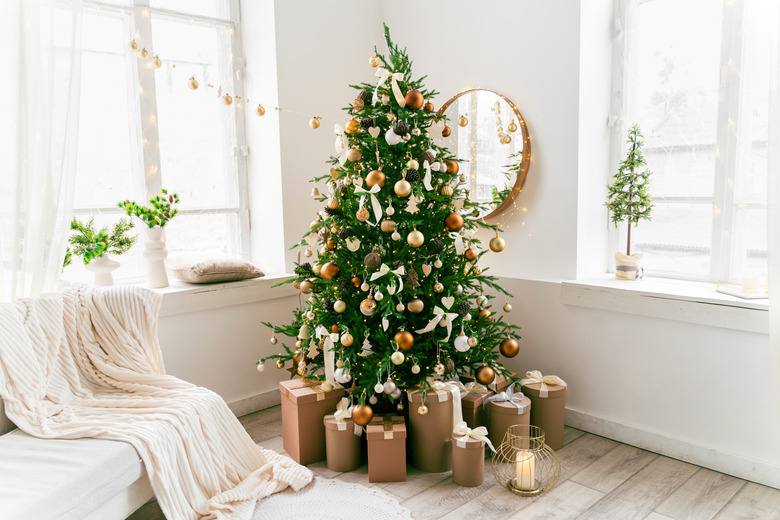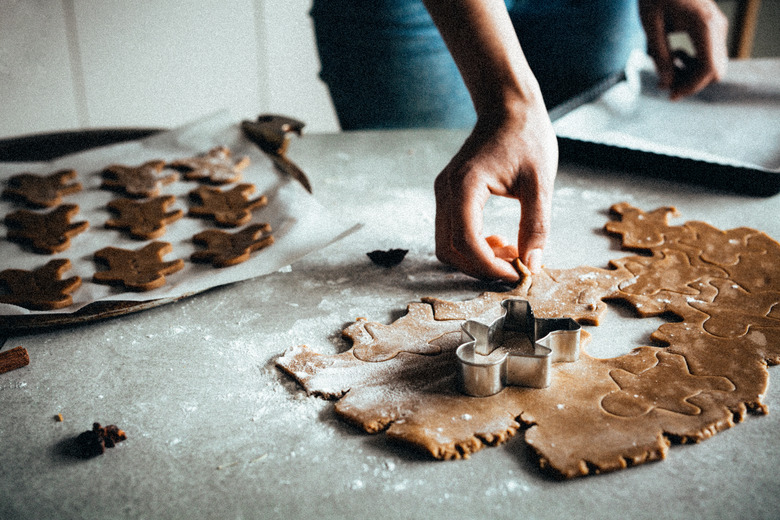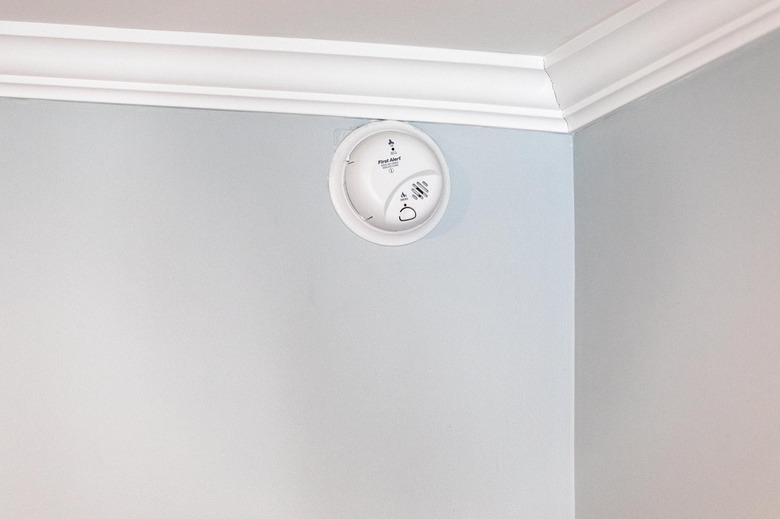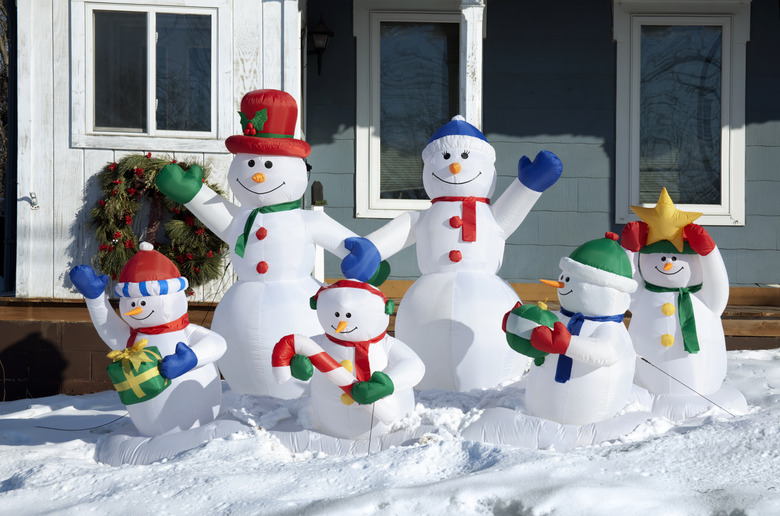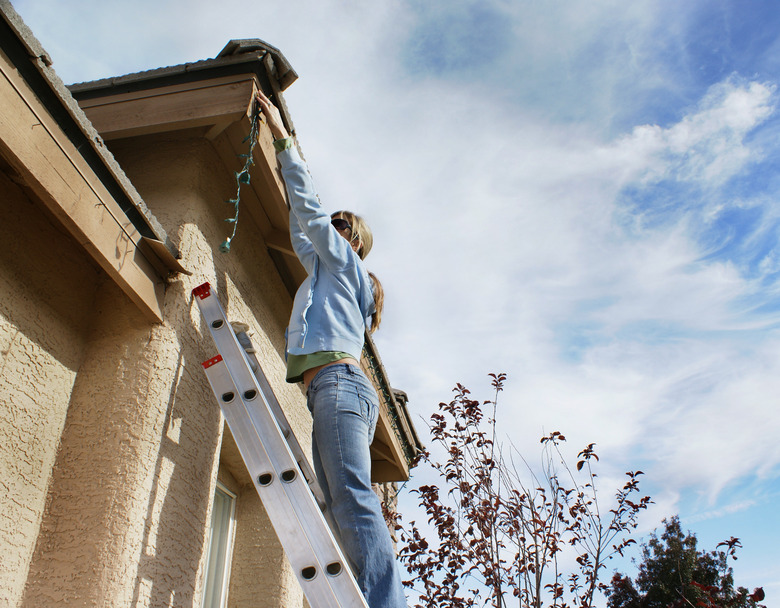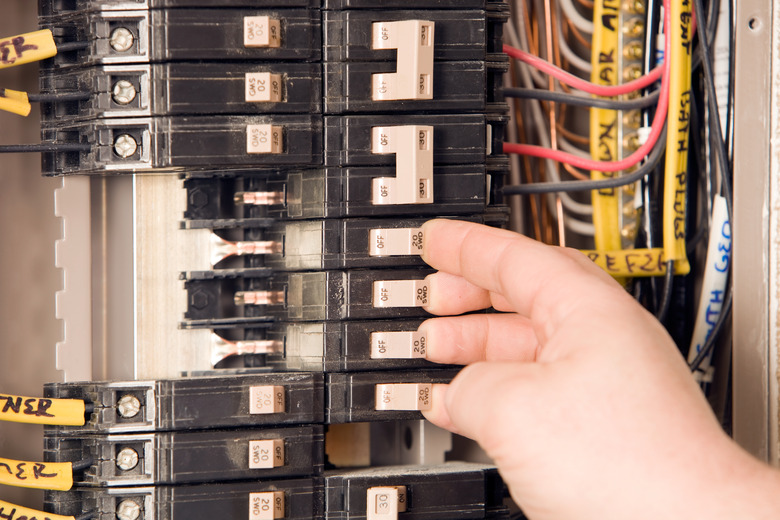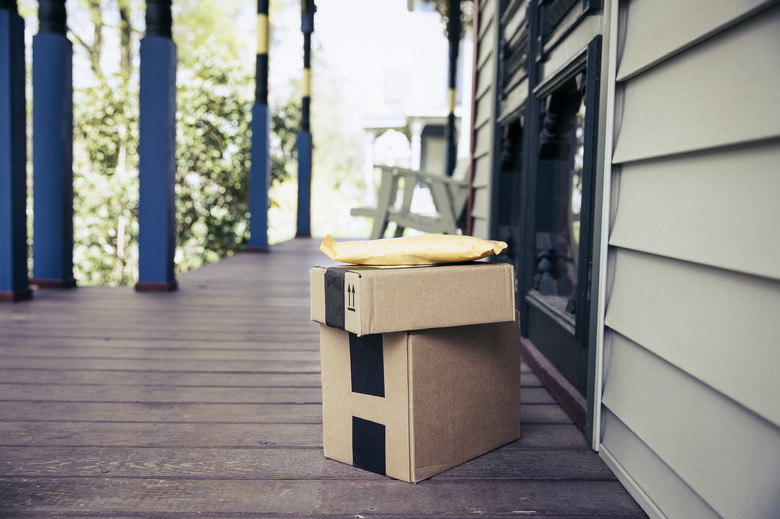Here Are The 9 Top Holiday Home Hazards — And How To Avoid Them
There's nothing quite like the warm feeling you get from seeing twinkling Christmas lights while the smell of holiday cookies wafts through the air — but holiday decorating, cooking, and entertaining can actually be risky if not done correctly. In fact, nearly one-third of homeowners have damaged their home while entertaining or cooking during the holidays, and a similar percentage have been injured while decorating, according to a recent study conducted by home insurance group Hippo.
Hunker spoke with two experts — Steve Wilson, director of technical underwriting at Hippo, and Michael DiMartino, senior vice president of installations at Power Home Remodeling — to learn how to avoid the most common holiday home hazards, and how to best protect yourself, your family, your guests, and your home this winter.
Keep these tips in mind while trimming your tree, hanging your lights, cooking your favorite holiday treats, and celebrating with your loved ones.
1. Improper Real Tree Care
Christmas trees are a leading cause of holiday fires. In the Hippo study, 52 percent of respondents planned to get a real Christmas tree, but only 16 percent planned to water their tree daily. Our experts warned that fresh water and regular water changes are necessary to keep a real Christmas tree from drying out. You may also unplug the lights and mist the needles with a spray bottle if they start to feel dry.
Also be sure to dispose of your real tree the week after Christmas. "The longer you keep it, the more of a liability it becomes," Wilson tells Hunker.
2. Poor Christmas Tree Placement
Christmas tree location is another safety consideration. Never put your tree (even an artificial tree) anywhere near a fireplace or any other source of fire, including candles. You should ideally place your tree near an outlet to minimize tripping hazards from cords.
Always choose a tree that's the right size for your home. An overly tall tree can damage your ceiling, and one that's too wide may impede foot traffic, causing someone to fall or knock over the tree.
3. Cooking Without Care
If you're entertaining for the holidays, chances are you'll be doing more cooking. Whether you plan to prepare a feast or just bake holiday cookies, pay attention to what you're doing to protect yourself, your guests, and your home. Never cook while intoxicated, and avoid placing alcohol near the stove while you cook.
And although deep-fried turkeys may be delicious, this cooking process is incredibly dangerous and a common cause of holiday fires. If you plan to fry a turkey (12 percent of homeowners do according to Hippo's study), be sure to do it outside, ideally on a driveway or patio. Make sure to do your research before cooking, have a fire extinguisher ready, and fully defrost the bird before attempting to cook it.
Whatever your main course, use a meat thermometer to ensure it reaches the proper internal temperature to reduce the risk of food poisoning.
4. Ignoring Fire Safety
There are far more fires in the winter than at any other time of year. To minimize your risk, have a fire extinguisher in your kitchen, near your fireplace, and every 40 feet throughout the rest of your home. Every adult living in your home should know where the extinguishers are and how to use them. Keep kids and pets away from candles, fireplaces, stoves, or any other fire source.
Before the holidays, check the batteries in your smoke detectors — including backup batteries in hardwired models. Replace the batteries in all units when one needs new batteries rather than waiting for each one to fail individually. Make this a yearly habit.
If you have a fireplace, get it serviced once a year, ideally in the fall, before you want to build a fire. Clean the ashes after each use and always put out the fire before going to bed.
Avoid placing flammable items near fireplaces and candles. DiMartino suggests not decorating with open flames and sticking with electric candles instead. If you do choose to use real candles, be sure to extinguish them before leaving the room.
5. Incorrect Outdoor Decoration Installation
Nailing, screwing, or stapling into your fascia, trim, door, or — even worse — your roof is a terrible idea because the resulting holes open up these materials to water and termite damage. When hanging wreaths, Christmas lights, garlands, or other decorations outside your home, look for alternative solutions that won't damage your home.
Depending on what you plan to hang and where, our experts suggest using 3M Command Light Clips or clips that attach to your gutters, shingles, or fascia. If you want to hang something on a window, use a 3M Command Strip Hook or a suction cup. Velcro strips and gaffers tape are ideal for use around banisters and handrails. For doors, stick with wreath hangers, though DiMartino advises homeowners to ensure the hanger doesn't bend or damage their weatherstripping.
When securing decorations, keep inclement weather in mind. "You want to avoid them flying away like a sail," says DiMartino. Luckily, it's easy enough to keep inflatables or outdoor tree ornaments secure in heavy wind, rain, or snow. Secure outdoor ornaments to trees using zip ties, and always anchor inflatables properly. While some brands of inflatables typically do fine in light showers, wind, and snow, it's best to turn them off during storms.
Lastly, be careful not to leave cords strewn on the ground or running across entryways, as these are tripping hazards. If you can't put the cords out of the way, use a cord cover to reduce the risk of falls.
6. Unsafe Ladder Usage
When possible, avoid using a ladder to install your lights altogether by either hiring a professional installer or using a telescoping rod to put your gutter, fascia, or shingle clips on your roof. If neither of these options works for you, keep ladder safety in mind when installing your lights. Always follow these ladder safety tips:
- Place the base of the ladder 1 foot out for every 4 feet of vertical height (where the ladder touches the building).
- Before climbing, ensure the ladder is
placed on a stable, slip-free surface. - Avoid using a ladder with children or pets
around. - Use a spotter to help steady the ladder, as
necessary, and to hand you anything you need when you're at the top. - Consider using a ladder stabilizer to prevent wobbling.
- When you're finished using the ladder, put it
away immediately.
7. Not Using the Right Lights
Inspect lights and extension cords before use, looking for frayed wires or damaged casings. If you've ever stapled lights in place in the past (in the future, use the hole-free installation methods mentioned above), carefully inspect the wires to ensure that they are free from cuts or crimping. Replace any damaged light strips or electric cords, as these present a fire and shock risk.
Outdoors, use only lights and extension cords rated for outdoor use. While these are more expensive, "They're designed to withstand the elements," Wilson points out. Although indoor lights are safe when used correctly, they're not sealed and quickly degrade when used outdoors.
8. Overloading Circuit Breakers
Before you ever plug your lights into an outlet, learn which circuit breaker controls the power to each outlet, suggests DiMartino. Knowing your electrical system allows you to spread the usage from your decorations across multiple circuit breakers, helping you avoid overloading the circuits. If a circuit becomes overloaded and trips the breaker, that's a good sign that you need to move some of the lights from that circuit.
Never plug a power strip into another power strip or outlet extender. While most Christmas lights are designed to be daisy-chained (with one string plugged into the next), be wary of stringing too many strands together. Avoid connecting more than two strands of incandescent bulbs because of their higher wattage; you can connect more LED lights because they use significantly less electricity.
Because water from rain, snow, or even dew can enter the outdoor plugs on lights and inflatables and cause circuits to overload, only plug these into outlets with GFCI (ground-fault circuit-interrupter) protection. These are the types of outlets you always see in bathrooms, and they are designed to switch off when they detect a fault (such as water causing an electric arc), preventing dangerous electrical shock.
9. Leaving Packages Outdoors
Package theft is a common problem during the holidays — 38 percent of respondents to Hippo's holiday survey have been the victim of package theft. And the risk is 113 percent higher than average for those living in multifamily housing. To keep yourself safe, always take packages inside as soon as possible, and consider asking a neighbor to collect boxes on your behalf if you won't be available at the time of delivery.
Wilson also suggests scheduling packages to be delivered when you know you'll be home, requesting a delivery signature for expensive items whenever possible, or using a smart lock paired with a video doorbell so delivery drivers can secure the items in your home when you're away.
